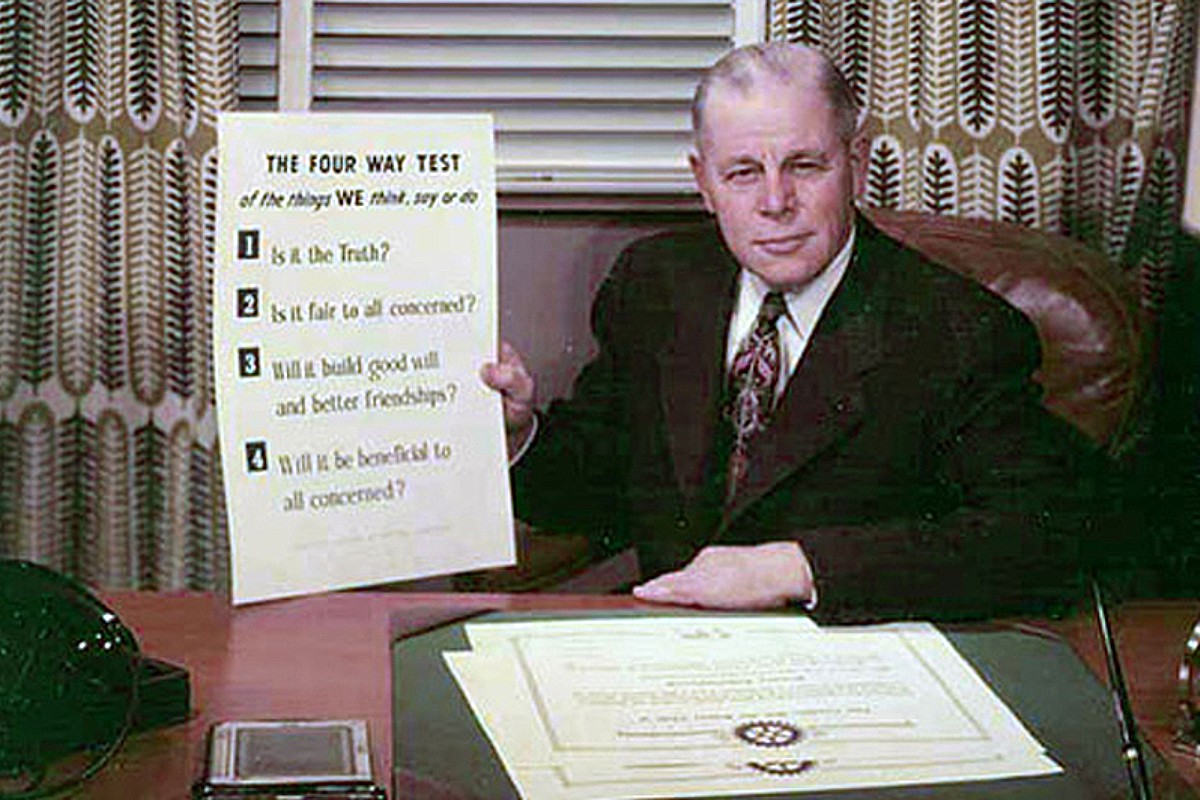STATEHOUSE REPORT | ISSUE 21.42 | OCT. 21, 2022
BIG STORY: Dead last: S.C. is nation’s least energy-efficient state, study says
NEWS BRIEFS: Why can’t Americans be this clever?
LOWCOUNTRY, Ariail: Whining and demanding
COMMENTARY, Brack: Apply The Four-Way Test to political candidates
SPOTLIGHT: Palmetto Care Connections
FEEDBACK: Send us your thoughts
MYSTERY PHOTO: Intersection
Study: S.C. is nation’s least energy-efficient state

Staff reports | South Carolina is the nation’s least energy-efficient state, according to a new study by WalletHub.
“This is why we have the 4th-highest electric bills in the nation,” said Eddy Moore, energy program director at the Coastal Conservation League. “So many homes in South Carolina — even recently-built homes — are not efficient.”
The study compared the auto- and home-energy efficiency in 48 U.S. contiguous states. In the study, South Carolina ranked last in home-energy efficiency, 33rd in vehicle-fuel efficiency and 35th in transportation efficiency. Due to data limitations, Alaska and Hawaii were excluded from the study.
The average American household spends at least $2,000 per year on utilities and another $2,148 on motor fuel and oil, according to WalletHub. The U.S. Department of Energy estimates that adopting energy-efficient measures in the home could reduce a family’s utility costs by as much as 25%.

“Energy efficiency does not mean turning down the thermostat,” Moore said. “It means having a professional energy audit and making the home airtight and insulated. Then the home will be cool in the summer and warm in the winter, with much lower bills.”
He said if your home is humid in the summer, it may not be airtight.
“If the air conditioner runs briefly and the home is cold and clammy, that is a sign the air conditioner is oversized. Both of these things drive up your electric bill without making the home comfortable.”
Heather E. Payne, an associate professor at Seton Hall University, suggests considering several switches for the best return on investment.
“Everyone, for example, should switch out their lightbulbs to LEDs — that is easy to do,” she said. “Other energy efficiency improvements, like replacing single-pane windows or adding exterior wall insulation, are both more expensive and much more disruptive/harder to do.
“The good news is that some utilities or municipalities offer low- or no-cost home energy assessments, which can give homeowners a good idea of the potential range of energy efficiency improvements they could make.”
Payne also suggests making the following improvements for building an energy-efficient home on a budget.
“Insulation and making the building tight are most important, as that is what is going to lead to lower monthly bills going forward,” she said. “Maintenance is also important-make sure the caulk around windows and doors doesn’t have holes, the weatherstripping is still tight, etc.
“With all of these, the best thing people can do is start being cognizant of their energy use, and then determine what the best way is to reduce that use — whether it is by installing energy efficient appliances like a heat pump water heater or space heater, making their home more airtight with caulking and weather stripping, or taking on larger projects like insulation.”
Moore added that new federal tax credits and rebates that start in 2023 could also help consumers.
“The federal government is making rebates of up to $14,000 per home available, but the state government is going to have to design a program to get the money out,” he said.
- To view the full report online, click here.
- Have a comment? Send to: feedback@statehousereport.com.
Why can’t Americans be this clever?

Staff reports | British Prime Minister Liz Truss resigned this week after just 44 days – the shortest tenure in British history – but a lettuce stole her thunder in the final days.
On Oct. 11, a columnist with The Economist magazine wrote that Truss’ grip on power, which started two days before Queen Elizabeth II died, truly lasted little more than seven days, when the nation’s 10-day mourning period was taken into account. Seven days, the columnist said, was “roughly the shelf-life of a lettuce.”
That clever phrase inspired a British newspaper, The Daily Star, to set up a webcam on Oct. 14 to ask in a gag of gags whether a common lettuce would last longer than Truss. Six days later, Truss resigned. The lettuce won.
Nearly 20,000 people reportedly watched live as someone flipped down a photo of Truss. Then “colorful lights swirled, and a recording of ‘God Save the King’ played on repeat. … ‘The lettuce outlasted Liz Truss,’ the video declared. Minutes later, a remix of ‘Celebration’ by Kool & the Gang set the mood.”
This Monty-Python-esque political gag has to go down as one of the greatest in political history. While there have been clever political commercials with humorous venom in the United States, it makes one wonder why Americans can’t be this clever. Anybody?
In other headlines:
![]() Court says Graham must testify in Ga. probe; He really doesn’t want to. A federal appeals court ruled Thursday that U.S. Sen. Lindsey Graham, R-S.C., must testify before a Georgia grand jury currently investigating possible attempts of former President Donald Trump and his allies to overturn the state’s 2020 presidential results. Graham, who has battled the subpoena for weeks, on Friday asked the U.S. Supreme Court to intervene so he didn’t have to testify. The New York Times wrote the ruling was a blow for Graham.
Court says Graham must testify in Ga. probe; He really doesn’t want to. A federal appeals court ruled Thursday that U.S. Sen. Lindsey Graham, R-S.C., must testify before a Georgia grand jury currently investigating possible attempts of former President Donald Trump and his allies to overturn the state’s 2020 presidential results. Graham, who has battled the subpoena for weeks, on Friday asked the U.S. Supreme Court to intervene so he didn’t have to testify. The New York Times wrote the ruling was a blow for Graham.
State Senate again rejects abortion ban. S.C. senators on Tuesday again rejected a proposal to ban nearly all abortions in the state, but left open a chance that a compromise could be reached in the four weeks the General Assembly has left to meet this year. On Tuesday, the Senate didn’t accept a House proposal, insisting on a different bill keeping a current ban on abortion after a heartbeat is present.
S.C. Supreme Court hears arguments in case against 6-week abortion ban. The South Carolina Supreme Court heard arguments Wednesday over the extent of the right to privacy in the proposed six week abortion ban.
State has millions to expand broadband. Gov. Henry McMaster and U.S. Rep. James Clyburn, D-S.C., recently announced that as of March 2022, more than 100,000 additional customers, many in rural areas, have gained high-speed broadband access through state and federal government investments in broadband expansion.The expanded service area cost nearly $480 million in federal and state funds. So far, the state has awarded more than $55 million in grants to internet service providers to make it financially feasible to run costly lines to more homes and businesses. Another $400 million will be awarded in the coming year in a move to cover the whole state.
S.C. education back to pre-pandemic performance. S.C. education officials revealed most students are back to pre-pandemic levels, but they’re not out of the woods yet. Chronic absenteeism and a widening gap between low- and high-performing students still remain an issue.
Data show some Charleston creeks have very high bacteria levels. Three out of 20 sites measured weekly have abnormally high bacteria levels, leading to failure rates on state standards. Four others routinely fail. Are the creeks safe for recreation? This story looks at the problem.
SC-1: Mace, Andrews clash. In what may be the state’s most interesting congressional race, U.S. Rep. Nancy Mace and Democratic challenger Dr. Annie Andrews clashed in a televised debate Wednesday over abortion rights, gun restrictions and gender-affirming care for children. Throughout the sparring, they tried to paint the other as too extreme.
S.C. is nation’s 6th least politically engaged state. South Carolina was the nation’s sixth least politically engaged state in 2022, according to a new study by WalletHub.
COVID UPDATE: 3,086 new cases, 18 deaths in last week. The number of new cases per week is hovering around 3,000, according to new data.
Whining and demanding

Cartoonist Robert Ariail often interprets things a little differently, but always has an interesting take on what’s going on in South Carolina. Love the cartoon? Hate it? What do you think: feedback@statehousereport.com.
Apply The Four-Way Test to political candidates

By Andy Brack | The explosive revelation this week from a federal judge that former President Donald Trump signed legal documents that challenged the results of the 2020 election in Georgia despite being told by his lawyer that his voter fraud claims were false illustrates the country’s dire political mess.
 In my book, telling lies just isn’t cool. Spreading them is just as bad.
In my book, telling lies just isn’t cool. Spreading them is just as bad.
Just how did the United States of America, beacon of liberty and justice, get so far down a road that election deniers and political liars have so reshaped the landscape that telling the truth is no longer embraced by far too many elected leaders? How did we get to this place in history where facts don’t seem to matter and people argue about things that are as clear as night and day? How did we stop trusting doctors and teachers and police and our leaders? And how do we get back to a place that Ronald Reagan, quoting from our history, called “the shining city on the hill” – the envy of the world?
When you vote in the November elections this year, we strongly encourage you to look deeply into your choices and determine whether the candidates you support are people who back false claims and false narratives of what’s going on in America or people who embrace traditional concepts like telling and accepting the truth – no matter how hard it may be.
Ask yourself what a candidate is for and if s/he works for the greater good of everyone. Ask yourself whether a candidate is motivated to improve your community, not just gain power for power’s sake.
In short, consider applying a new four-question test to political candidates based on a 24-word creed of business ethics adopted in 1943 by the nation’s Rotary clubs. Some 90 years ago, a Chicago businessman was asked to take charge of a company facing bankruptcy.
“We believed that ‘in right there is might,’ businessman Herbert J. Taylor later wrote, “and we determined to do our best to always be right.” He developed The Four-Way Test to guide his business and its relationships:
- Is it the truth?
- Is it fair to all concerned?
- Will it build goodwill and better friendships?
- Will it be beneficial to all concerned?
The guidelines worked and the company prospered. More importantly, lives changed – the kind of changes needed now in America’s gutter politics.
Imagine if America’s politicians were held again to such a high standard. We could get on with the business of prospering, not bickering.
Twenty years after penning the test, Taylor wrote, “We have enjoyed a constant increase in the good will, friendship and confidence of our customers, our competitors and the public and what is even more valuable, a great improvement in the moral character of our own personnel.We have found that you cannot constantly apply the Four-Way Test to all your relations with others eight hours each day in business without getting into the habit of doing it in your home, social and community life. You thus become a better father, a better friend and a better citizen.”
So as you prepare to vote Nov. 8, consider candidates that will lead your communities who tell the truth and are fair. South Carolina – and the United States – needs leaders with integrity, leaders who seek truth and avoid corruption and scandal.
Apply Rotary’s Four-Way Test to hold this year’s slate of candidates as the standard for them to emulate as they make decisions for everyone, not just people in their political tribe.
- Do they tell the truth?
- Are they fair?
- Do they work to build goodwill and better friendships?
- Do they work to be beneficial to all concerned?
There should be consequences for political leaders of any party who tell lies and aren’t fair to everyone they represent. They should become ex-leaders or ex-candidates as soon as possible. The election is just around the corner. Vote.
Andy Brack is editor and publisher of Statehouse Report and the Charleston City Paper. Have a comment? Send to: feedback@statehousereport.com.
Palmetto Care Connections
 Statehouse Report is brought to you at no cost thanks to the generous support of underwriters, such as Palmetto Care Connections.
Statehouse Report is brought to you at no cost thanks to the generous support of underwriters, such as Palmetto Care Connections.
Established in 2010, Palmetto Care Connections (PCC) is a non-profit organization that brings technology, broadband and telehealth solutions to health care providers in rural and underserved areas in South Carolina. PCC hosts the Annual Telehealth Summit of South Carolina presenting state and national best practices and trends, as well as providing networking connections for health care, technology and broadband professionals.
The leader of the South Carolina broadband consortium, PCC assists health care providers in receiving broadband savings through the Federal Communication Commission’s Healthcare Connect Fund program. Since 2013, PCC has helped providers save more than $25 million in broadband costs.
PCC co-chairs the South Carolina Telehealth Alliance, along with the Medical University of South Carolina, serving as an advocate for rural providers and partnering with organizations to improve health care access and delivery for all South Carolinians.
- Learn more about Palmetto Care Connections
Send us your thoughts
Have a comment? Send your letters or comments to: feedback@statehousereport.com. Make sure to provide your contact details (name, hometown and phone number for verification. Letters are limited to 150 words.
Intersection

Here’s an intersection somewhere in South Carolina. Guess where it is and you win a big, big prize. (Well, you win recognition in Statehouse Report.) Where is it? Send your guess – and your name and hometown – to feedback@statehousereport.com.
 Last week’s image of “Old brick building,” showed what was once known as the Lee Library at Claflin University. Built in 1898 as the historical black university’s first library, it now houses the Arthur Rose Museum.
Last week’s image of “Old brick building,” showed what was once known as the Lee Library at Claflin University. Built in 1898 as the historical black university’s first library, it now houses the Arthur Rose Museum.
Several regulars identified the building: Jay Altman and Elizabeth Jones, both of Columbia; Allan Peel of San Antonio, Texas; George Graf of Palmyra, Va.; Jacie Godfrey of Florence; David Lupo of Mount Pleasant; and Pat Keadle of Wagener. Good work!
Peel shared that “after the library was relocated to a much larger facility elsewhere on campus, the building housed the art department for many years with Professor Arthur Rose (1921 – 1995) as chairman. Later, the art department moved to Layman Hall and the board of trustees decided to convert the old Lee building into the Arthur Rose Museum.”
>> Send us a mystery picture. If you have a photo that you believe will stump readers, send it along (but make sure to tell us what it is because it may stump us too!) Send to: feedback@statehousereport.com and mark it as a photo submission. Thanks.
- ORDER NOW: Copies are in Lowcountry-area bookstores now, but if you can’t swing by, you can order a copy online today.
- Now available as an e-book!
ABOUT STATEHOUSE REPORT
Statehouse Report, founded in 2001 as a weekly legislative forecast that informs readers about what is going to happen in South Carolina politics and policy, is provided to you at no charge every Friday.
- Editor and publisher: Andy Brack, 843.670.3996
Donate today
We’re proud to offer Statehouse Report for free. For more than a dozen years, we’ve been the go-to place for insightful independent policy and political news and views in the Palmetto State. And we love it as much as you do.
But now, we can use your help. If you’ve been thinking of contributing to Statehouse Report over the years, now would be a great time to contribute as we deal with the crisis. In advance, thank you.
Buy the book
Now you can get a copy of editor and publisher Andy Brack’s We Can Do Better, South Carolina! ($14.99) as a paperback or as a Kindle book ($7.99). . The book of essays offers incisive commentaries by editor and publisher Andy Brack on the American South, the common good, vexing problems for the Palmetto State and interesting South Carolina leaders.
More
- Mailing address: Send inquiries by mail to: P.O. Box 21942, Charleston, SC 29413
- Subscriptions are free: Click to subscribe.
- We hope you’ll keep receiving the great news and information from Statehouse Report, but if you need to unsubscribe, go to the bottom of the weekly email issue and follow the instructions.
- Read our sister publication: Charleston City Paper (every Wednesday in print; Every day online)
- © 2022, Statehouse Report, a publication of City Paper Publishing, LLC. All rights reserved.


